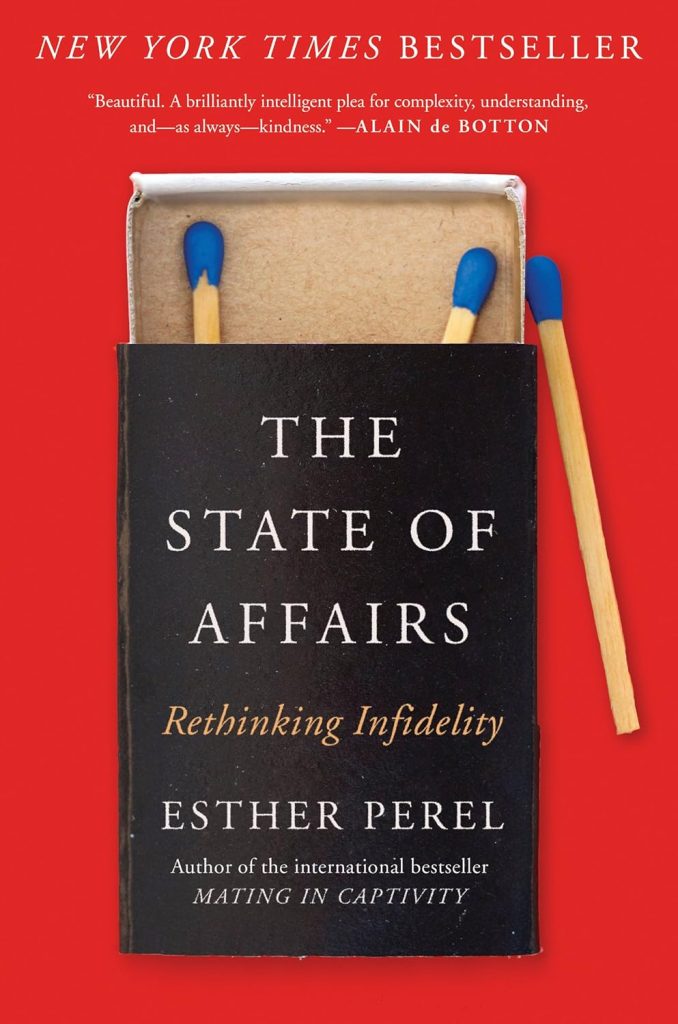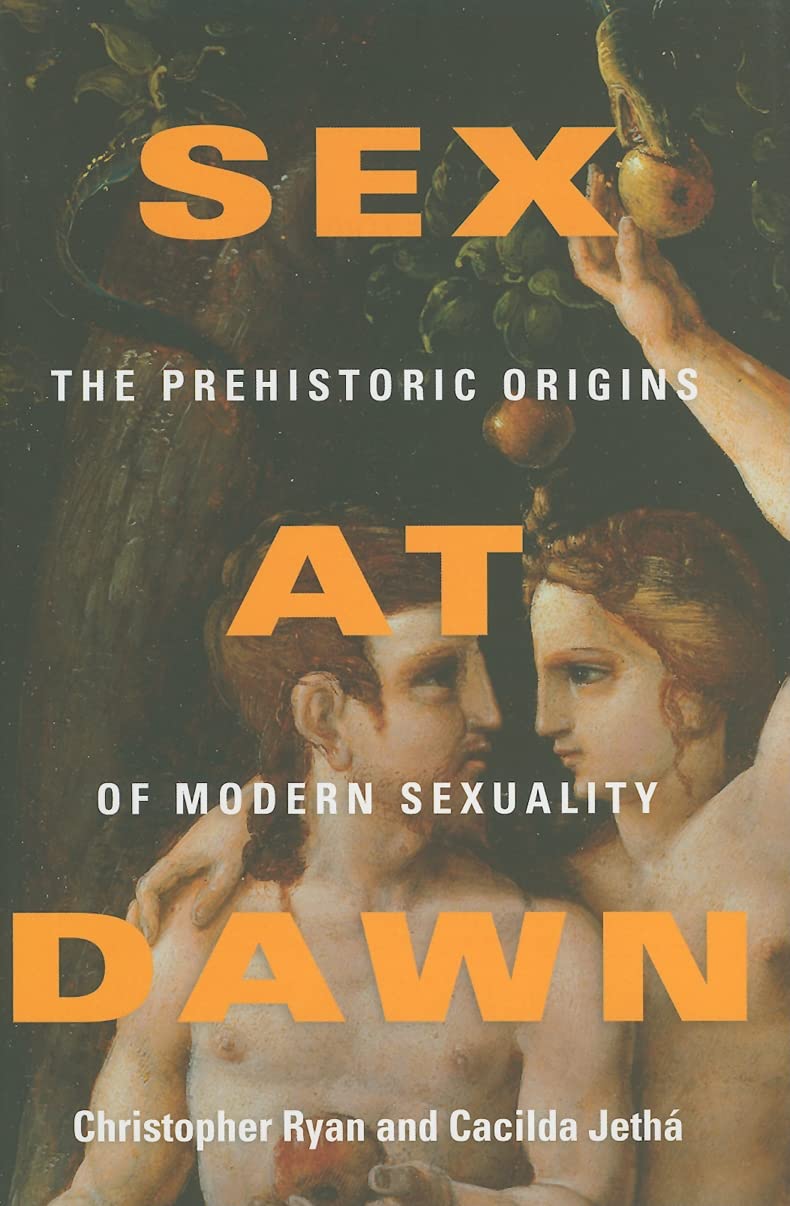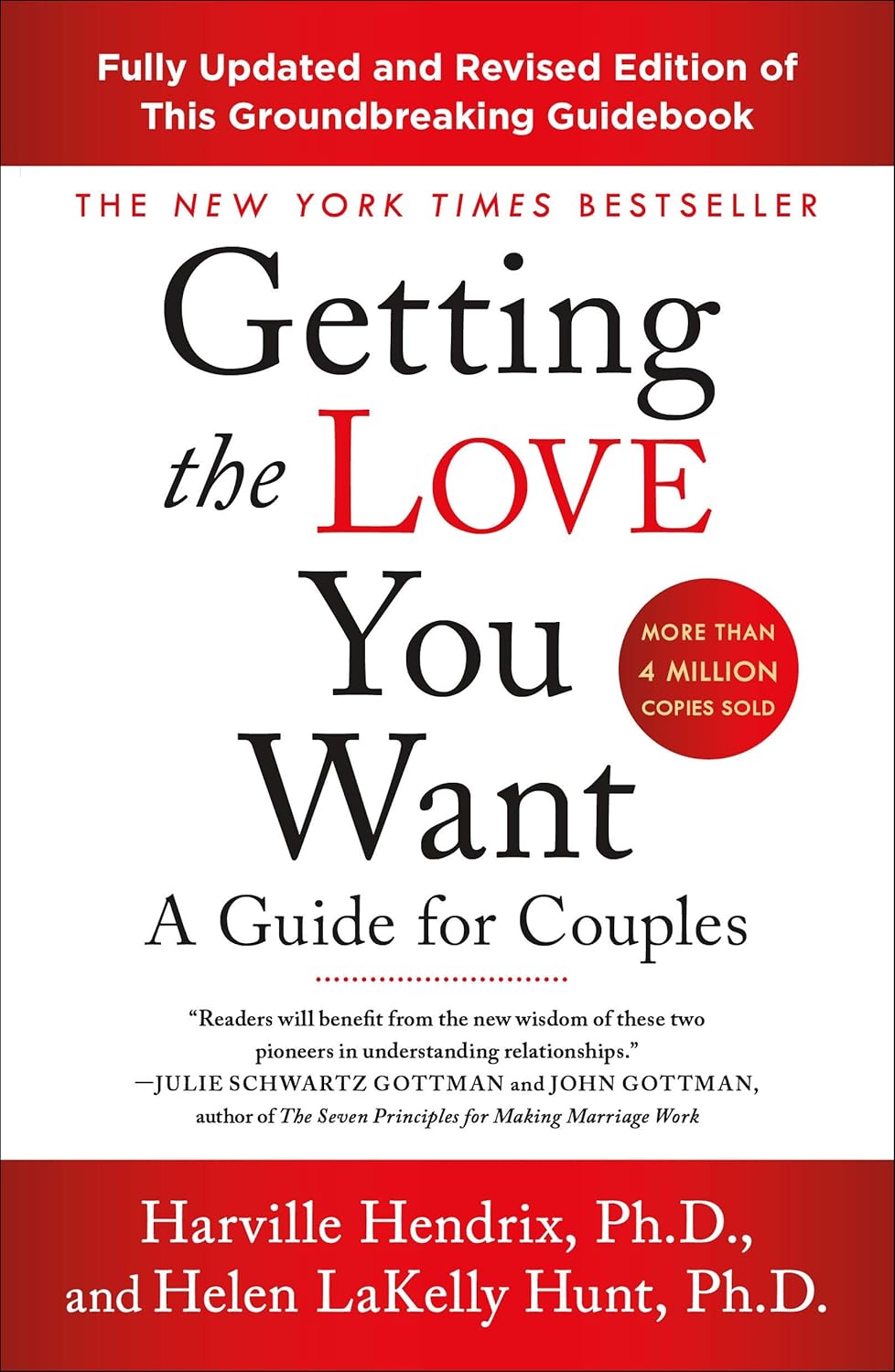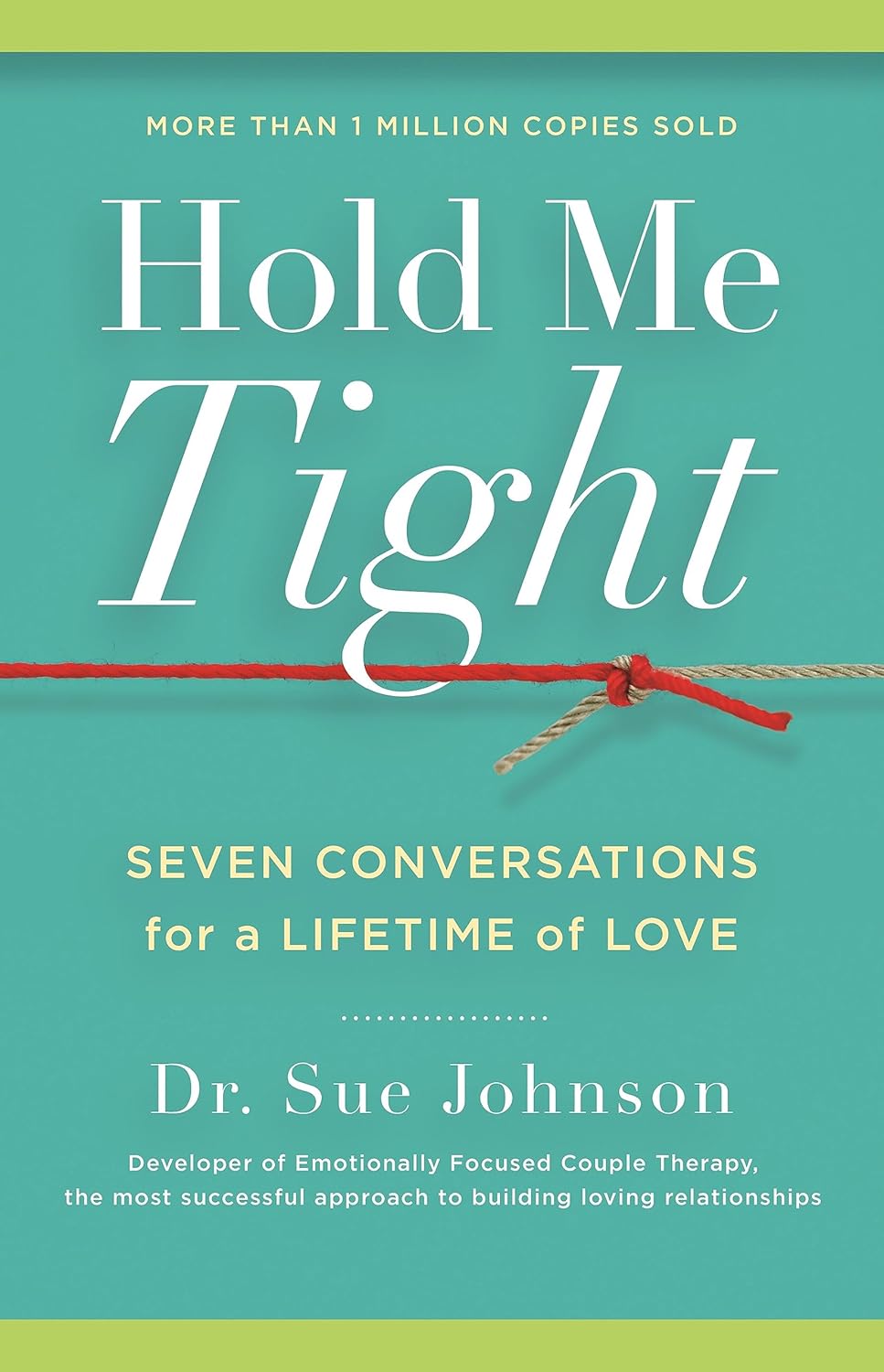
Buy The Book
The State of Affairs: Rethinking Infidelity
About
This book explores the complexities of infidelity, challenging conventional narratives and offering a nuanced perspective on why people stray. Through real-life case studies and psychological insights, the author delves into the emotional, relational, and societal factors that contribute to affairs. Rather than framing infidelity solely as a moral failure, the book examines its deeper meanings—what it reveals about unmet needs, personal growth, and evolving desires. It also addresses the consequences of betrayal, offering guidance on how individuals and couples can process, heal, and redefine their relationships. By encouraging open discussions and self-reflection, the book invites readers to reconsider assumptions about love, commitment, and trust in contemporary relationships.
Esther Perel, a renowned psychotherapist and relationship expert, is known for her work on modern love, desire, and intimacy. With decades of experience, she has gained international recognition through her TED Talks, bestselling books, and podcast, which explore the intricacies of human connection.
For People
– Couples navigating infidelity
– Therapists and relationship counselors
– Individuals questioning commitment and desire
– Readers interested in the psychology of love
– Those seeking personal growth in relationships

Spark
Review
Like this
✦ Part I: Setting the Stage (Chapters 1-3)
Infidelity has existed for as long as relationships themselves, yet the way it is perceived and discussed continues to evolve. Betrayal carries an emotional weight that extends far beyond the individuals directly involved, touching on deeply ingrained cultural beliefs, personal values, and societal norms. For those who experience it, whether as the betrayed or the unfaithful, the discovery of an affair can be a defining moment, shaking their sense of reality and forcing them to confront difficult questions about love, trust, and commitment. The emotional turbulence that follows can be overwhelming, stirring feelings of anger, grief, confusion, and self-doubt.
The meaning of infidelity is far from universal. While some see it as an unforgivable violation of trust, others view it as a symptom of deeper issues within a relationship. The complexity of affairs lies not only in the act itself but in the interpretations attached to them. The betrayed partner often wrestles with feelings of inadequacy, questioning whether they were not enough to keep their partner satisfied. Meanwhile, the unfaithful partner may experience both guilt and relief—guilt over the hurt they have caused, but relief at having rediscovered a part of themselves they feared was lost. Affairs, at their core, are not just about deception but about longing, dissatisfaction, and the search for something that feels missing.
Human relationships are shaped by a fundamental tension: the desire for security and stability on one hand, and the longing for excitement and novelty on the other. People seek comfort in their relationships, yet they also crave the thrill of discovery and the possibility of something new. This paradox is at the heart of many affairs. Some who cheat do so not because they are unhappy in their relationships, but because they are searching for an aspect of themselves that has been buried under the weight of routine and responsibility. Others stray because their relationship feels stagnant, lacking the passion or intimacy they once had. The reality is that even strong, loving relationships are not immune to infidelity, because the motivations behind it often stem from personal struggles rather than a lack of love.
The expectations placed on modern relationships have never been higher. Partners are expected to be lovers, best friends, co-parents, and emotional confidants, all while maintaining passion and excitement over years or even decades. These expectations can be overwhelming, leading some to seek outside experiences to fulfill needs they believe cannot be met within their primary relationship. The digital age has further complicated matters, providing endless opportunities for connection and temptation. Online interactions blur the boundaries of fidelity, raising difficult questions about what constitutes betrayal. Is it only physical intimacy that matters, or can emotional connections formed in secret be just as damaging?
The conversation around infidelity often centers on those who have been betrayed, but the experience of the unfaithful is just as complex. Many who cheat are not simply seeking pleasure or escape; they are searching for a version of themselves that feels more alive, more desirable, or more connected to their own identity. Some feel trapped in routines that have dulled their sense of excitement, while others feel unseen or unappreciated in their relationships. Affairs can be a way of reclaiming lost parts of the self, even if the consequences are painful and far-reaching.
Rather than relying on simplistic moral judgments, understanding infidelity requires a deeper exploration of human emotions, personal longings, and relationship dynamics. The pain of betrayal is undeniable, but it can also serve as a mirror, reflecting hidden truths about what people seek in love and connection. Instead of asking whether infidelity is right or wrong, the more revealing question is what it tells us about human nature, the changing expectations of relationships, and the struggles individuals face in balancing the need for security with the desire for passion.
✦ Part II: The Fallout (Chapters 4-8)
The revelation of an affair can be devastating, sending shockwaves through a relationship and leaving both partners reeling. The betrayed often experiences an emotional rollercoaster, shifting between rage, sorrow, disbelief, and a profound sense of loss. Trust, which may have taken years to build, is shattered in an instant, leaving them questioning not only their partner but their own perceptions of reality. The pain is not just about the act of betrayal itself, but about the feelings of inadequacy, rejection, and the fear that their relationship was never what they believed it to be.
For many, the immediate instinct is to leave, unable to fathom continuing a relationship with someone who has caused such deep hurt. Others, however, find themselves in a state of uncertainty, torn between the love they still feel and the pain they cannot ignore. The decision to stay or leave is rarely clear-cut. Some relationships do not survive, while others find a way to rebuild, though the journey is often long and fraught with challenges. The ability to move forward depends on multiple factors—whether the unfaithful partner takes responsibility, whether both individuals are willing to engage in difficult conversations, and whether there is a shared desire to heal.
The unfaithful partner, too, experiences their own emotional turmoil. Guilt, shame, and regret are common, but so is confusion. Some struggle to understand what led them to stray, realizing their actions were not just about dissatisfaction in their relationship, but about personal needs they had ignored or failed to communicate. Others may feel torn between their love for their partner and the emotions they developed in the affair. The process of rebuilding, if chosen, requires more than just apologies—it requires deep introspection, honesty, and a willingness to confront uncomfortable truths.
The presence of a third party adds another layer of complexity. Often, they are cast as villains, but their experiences are just as varied. Some enter affairs unknowingly, only to find themselves entangled in painful situations, while others knowingly pursue relationships with unavailable partners, drawn by their own emotional struggles. The role of the third party is not simply to be blamed but to be understood as part of a broader narrative of longing, desire, and human vulnerability.
Rebuilding after an affair is neither quick nor easy. Trust is not restored overnight, and both partners must be willing to engage in open, honest conversations about their relationship and what they need from each other moving forward. Healing is not about erasing the past but about finding a way to navigate the pain without letting it completely define the future. Some couples find that, ironically, the affair forces them to address long-ignored issues, leading to a relationship that is ultimately stronger. Others realize that the damage is too great, and parting ways becomes the healthiest choice.
Infidelity forces individuals to confront uncomfortable truths—not just about their relationships, but about themselves. It highlights the contradictions of human desire, the limitations of monogamy, and the evolving nature of love. Rather than viewing affairs purely as destructive forces, there is an opportunity to use them as catalysts for deeper self-awareness and reflection. Whether a relationship survives or ends, the process of understanding infidelity can lead to a clearer sense of what one truly seeks in love and connection.
✦ Part III: Meanings and Motives (Chapter 9-13 )
Every betrayal carries a story, shaped by personal histories, deep-seated emotions, and the search for something beyond the routine. Those who stray rarely do so with malicious intent; instead, they are often searching for lost parts of themselves, yearning for vitality, recognition, or escape from monotony. Some seek intensity, while others crave tenderness. The reasons are as varied as the individuals involved, yet patterns emerge—longing, discontent, and the pull of the forbidden.
Motivations for infidelity are rarely simple. Some people find themselves drawn to an affair because they feel unseen or unappreciated in their current relationship. Others seek out new experiences not as a rejection of their partner, but as a way to reconnect with a version of themselves they fear they have lost. The search for excitement, passion, or affirmation often plays a significant role. Sometimes, an affair is an assertion of independence, an attempt to reclaim agency in a life that feels overly dictated by responsibility, routine, or the expectations of others.
For those who engage in infidelity, the experience is often filled with contradictions. There is exhilaration in secrecy, yet also a deep sense of guilt. The affair may bring feelings of aliveness, yet it also carries the weight of deception. Some justify their actions by believing they are pursuing something essential to their well-being, while others struggle with the moral implications of their choices. Meanwhile, for those who are betrayed, the discovery of an affair can feel like the ground has been pulled from beneath them. A relationship that once felt secure suddenly seems fragile, and trust—once taken for granted—now appears impossible to restore.
The emotional turmoil caused by infidelity is not limited to those directly involved. Friends, family members, and even children may feel the ripple effects of betrayal. The way society perceives affairs also shapes how people process them. Cultural narratives often depict infidelity as purely destructive, yet in reality, it is far more nuanced. Some relationships do not end because of an affair, but instead undergo a transformation, forcing both partners to confront truths they may have avoided.
While affairs are often assumed to be the result of dissatisfaction, this is not always the case. Some people stray not because they are unhappy, but because they are curious, drawn to the idea of experiencing another version of themselves. For them, the affair is not necessarily about rejecting their partner but about exploring an aspect of their identity that has been suppressed or forgotten. This hidden longing can emerge at unexpected moments, triggered by a chance encounter, a moment of vulnerability, or even a realization that life is passing by too quickly.
Betrayal forces a confrontation with reality—both for those who stray and those who are betrayed. Truths that once seemed certain are suddenly in question. A sense of self, of love, and of trust is shaken. Some find clarity in the aftermath, realizing what they truly want, while others are left in a fog of uncertainty. The meaning of an affair is not fixed; it shifts with perspective, shaped by personal history, cultural expectations, and individual emotions.
Navigating the emotional landscape of infidelity requires an understanding that betrayal is not always about a failing relationship. It can stem from personal evolution, unspoken needs, or a desire for something intangible. By acknowledging these complexities, it becomes possible to explore the deeper meanings behind infidelity, rather than reducing it to a simple act of wrongdoing. Affairs are often a symptom of something larger, a signal that something within the individual—or the relationship—has been neglected. Whether they lead to heartbreak or transformation, they reveal truths that might otherwise remain buried.
✦ Part IV: Ever After (Chapter 14-15 )
After infidelity, relationships rarely return to what they once were. Some collapse under the weight of broken trust, while others, though deeply wounded, manage to rebuild in new and unexpected ways. The aftermath of betrayal is not a simple process of forgiveness or separation; it is a profound emotional reckoning that forces both partners to confront painful truths about themselves, their relationship, and their future. The journey forward is often filled with uncertainty, as emotions shift between anger, sorrow, longing, and, sometimes, hope.
For those who attempt to mend the relationship, honesty becomes a necessary foundation. This is not just about revealing details of the affair but about creating space for deeper conversations—ones that may have been avoided for years. Some couples discover that, in confronting the betrayal, they are forced to articulate desires, frustrations, and vulnerabilities that had been buried under routine and complacency. These conversations, though painful, can bring a level of emotional intimacy that was previously missing. However, not every relationship is capable of withstanding this level of exposure. Some partners realize that the betrayal is just one symptom of a larger disconnect, one that cannot be repaired.
Rebuilding trust requires time, patience, and willingness from both sides. The partner who strayed must not only express remorse but also show, through consistent actions, a commitment to transparency and emotional accountability. Meanwhile, the betrayed partner must decide whether they can allow themselves to trust again, knowing that the certainty they once relied on has been permanently altered. There is no universal timeline for healing; for some, wounds begin to mend within months, while for others, the pain lingers for years. Even in relationships that survive, scars remain—a reminder of what was lost and what was rebuilt in its place.
Forgiveness, when it comes, is not a single moment but a process. It does not mean forgetting or excusing the betrayal but rather choosing not to let it define the relationship indefinitely. Some partners find that, in working through the pain, they develop a stronger, more honest connection with each other. They become more attuned to each other’s needs, more intentional about nurturing desire and emotional closeness. However, others recognize that the damage is too great, and no amount of effort can restore the sense of security that was shattered. In these cases, separation becomes an act of self-preservation rather than failure.
For those who part ways, the end of the relationship does not always mean the end of love. Some carry the memory of what was good, even as they accept that they can no longer be together. Others find relief in leaving behind a dynamic that no longer served them, using the experience as an opportunity to rediscover themselves outside the confines of the relationship. The pain of betrayal may linger, but in time, it often transforms, shifting from raw heartbreak to a deeper understanding of personal needs, limits, and desires.
Moving forward after infidelity is not just about deciding whether to stay or leave. It is about redefining what love, trust, and commitment mean in the wake of betrayal. Some relationships survive by renegotiating their boundaries, moving away from rigid definitions of monogamy and toward agreements that better reflect their evolving needs. Others reaffirm their commitment to exclusivity but with a new awareness of the vulnerabilities that exist within any relationship. For those who choose separation, the experience of infidelity often reshapes their approach to future relationships, influencing how they navigate trust and emotional intimacy.
There is no singular path to healing, no fixed formula for what comes after betrayal. Some couples emerge from the wreckage stronger, having confronted uncomfortable truths and built something new from the ruins. Others dissolve, accepting that their relationship has reached its natural conclusion. And some remain in a space of unresolved tension, unable to fully let go but also unable to move forward. Each journey is unique, shaped by individual histories, emotional capacities, and the willingness (or unwillingness) to confront the realities of what has happened.
Ultimately, what matters is not just the betrayal itself but what is learned from it. The experience of infidelity forces a reckoning, with oneself and with one’s partner. It reveals unmet needs, unspoken desires, and hidden fractures that may have existed long before the affair. Whether a relationship is repaired or abandoned, the lessons that emerge from betrayal leave a lasting imprint, shaping not only the future of that relationship but also the way love and trust are understood moving forward.



















